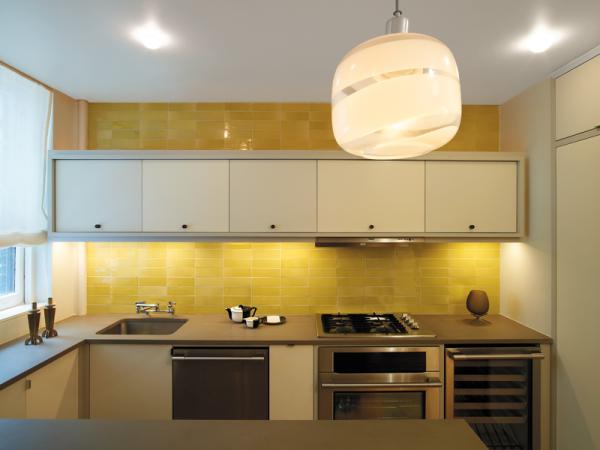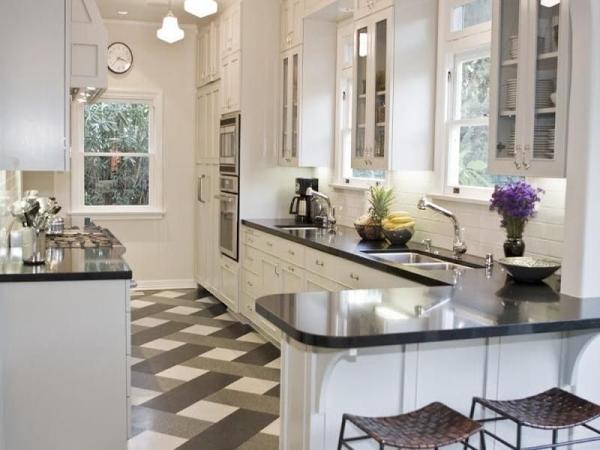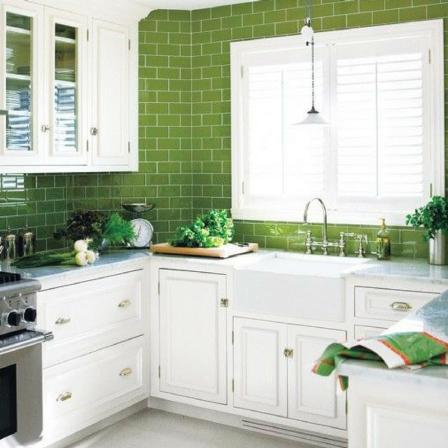When it comes to selecting the perfect flooring option for your space, ceramic and porcelain tiles are popular choices. Both options offer durability, versatility, and a wide range of design options. However, understanding the differences between ceramic and porcelain tile flooring is essential in making an informed decision for your business or home. In this article, we will delve into the characteristics, benefits, and drawbacks of each type, helping you select the flooring option that best suits your needs. Ceramic Tile: Ceramic tiles are made from a mixture of clay and other natural materials. These tiles are then kiln-fired at lower temperatures, ensuring a more porous and affordable end product. Here are some key characteristics of ceramic tile flooring: 1. Affordability: Ceramic tiles are generally more budget-friendly compared to porcelain tiles. If you are working within a tight budget, ceramic tiles provide an economical choice.
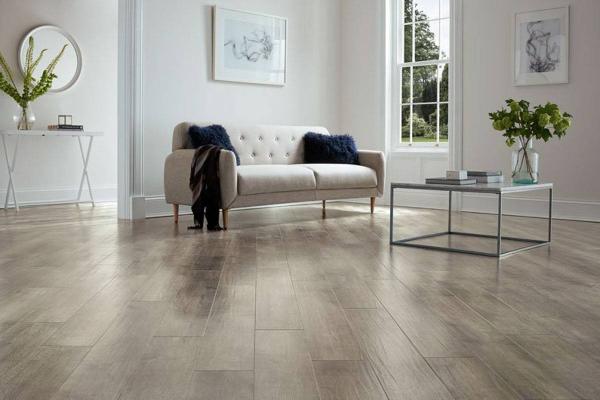
.
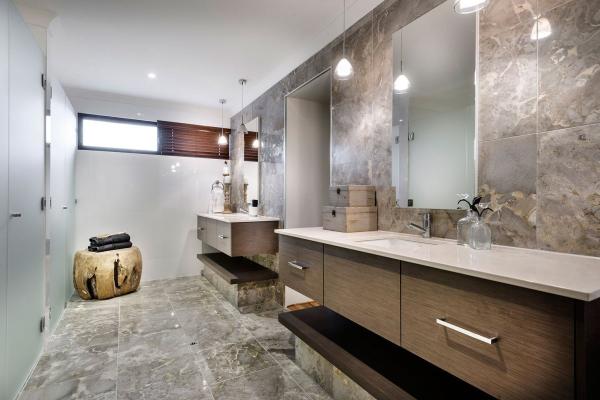 2. Versatility: Ceramic tiles are available in various sizes, shapes, colors, and designs. From vibrant patterns to natural stone-like finishes, ceramic tiles offer a wide range of options to match your aesthetic preferences. 3. Durability: Despite being more porous than porcelain tiles, ceramic tiles still exhibit impressive durability. They are resistant to scratches and denting, but they may not be as suitable for high-traffic areas or areas prone to moisture. 4. Maintenance: Ceramic tiles are relatively low-maintenance compared to other flooring options. Regular sweeping and occasional mopping with a neutral cleaner are usually sufficient to keep them looking pristine. Porcelain Tile: Porcelain tiles are made from a blend of fine clay, feldspar, and other minerals. They are fired in kilns at much higher temperatures, resulting in a denser and less porous tile.
2. Versatility: Ceramic tiles are available in various sizes, shapes, colors, and designs. From vibrant patterns to natural stone-like finishes, ceramic tiles offer a wide range of options to match your aesthetic preferences. 3. Durability: Despite being more porous than porcelain tiles, ceramic tiles still exhibit impressive durability. They are resistant to scratches and denting, but they may not be as suitable for high-traffic areas or areas prone to moisture. 4. Maintenance: Ceramic tiles are relatively low-maintenance compared to other flooring options. Regular sweeping and occasional mopping with a neutral cleaner are usually sufficient to keep them looking pristine. Porcelain Tile: Porcelain tiles are made from a blend of fine clay, feldspar, and other minerals. They are fired in kilns at much higher temperatures, resulting in a denser and less porous tile.
..
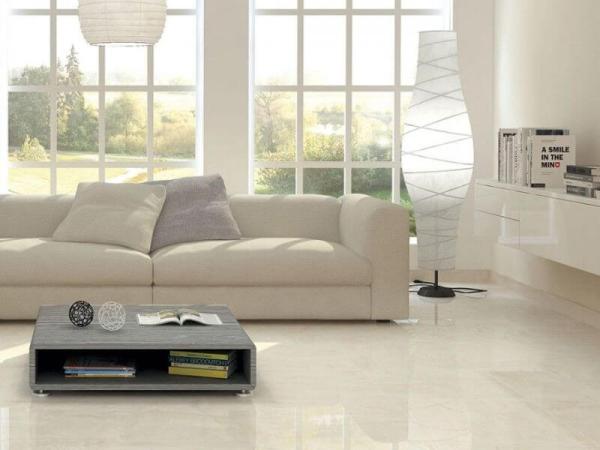 Here are some key features of porcelain tile flooring: 1. Water Resistance: One of the most significant advantages of porcelain tiles is their incredibly low water absorption rate, making them highly suitable for areas exposed to moisture like bathrooms, kitchens, and entryways. 2. Durability: Porcelain tiles are renowned for their exceptional durability. Being more dense and less porous, they are highly resistant to stains, chips, and wear and tear, making them an ideal choice for high-traffic areas. 3. Maintenance: Similar to ceramic tiles, porcelain tiles are low-maintenance. However, due to their less porous nature, they are even more resistant to staining and require minimal upkeep. 4. Design Options: Porcelain tiles offer a wide range of design options, including natural stone-look, wood-look, and contemporary patterns. They are also available in larger formats, allowing for seamless installation and a more spacious feel.
Here are some key features of porcelain tile flooring: 1. Water Resistance: One of the most significant advantages of porcelain tiles is their incredibly low water absorption rate, making them highly suitable for areas exposed to moisture like bathrooms, kitchens, and entryways. 2. Durability: Porcelain tiles are renowned for their exceptional durability. Being more dense and less porous, they are highly resistant to stains, chips, and wear and tear, making them an ideal choice for high-traffic areas. 3. Maintenance: Similar to ceramic tiles, porcelain tiles are low-maintenance. However, due to their less porous nature, they are even more resistant to staining and require minimal upkeep. 4. Design Options: Porcelain tiles offer a wide range of design options, including natural stone-look, wood-look, and contemporary patterns. They are also available in larger formats, allowing for seamless installation and a more spacious feel.
…
 Choosing Between Ceramic and Porcelain Tile: The decision between ceramic and porcelain tile ultimately depends on your specific requirements. If you have a limited budget or are focusing on an area with low traffic, ceramic tile may be suitable for you. On the other hand, if your space experiences heavy foot traffic or requires water and stain resistance, porcelain tile is the obvious choice. Conclusion: Both ceramic and porcelain tiles provide durable, versatile, and aesthetically pleasing flooring options for various applications. By understanding their unique characteristics, benefits, and drawbacks, you can confidently select the tile that aligns with your budget, requirements, and desired design scheme. Whether you opt for the budget-friendly ceramic tile or the robust and water-resistant porcelain tile, either choice will undoubtedly enhance the beauty and functionality of your business or home.
Choosing Between Ceramic and Porcelain Tile: The decision between ceramic and porcelain tile ultimately depends on your specific requirements. If you have a limited budget or are focusing on an area with low traffic, ceramic tile may be suitable for you. On the other hand, if your space experiences heavy foot traffic or requires water and stain resistance, porcelain tile is the obvious choice. Conclusion: Both ceramic and porcelain tiles provide durable, versatile, and aesthetically pleasing flooring options for various applications. By understanding their unique characteristics, benefits, and drawbacks, you can confidently select the tile that aligns with your budget, requirements, and desired design scheme. Whether you opt for the budget-friendly ceramic tile or the robust and water-resistant porcelain tile, either choice will undoubtedly enhance the beauty and functionality of your business or home.
